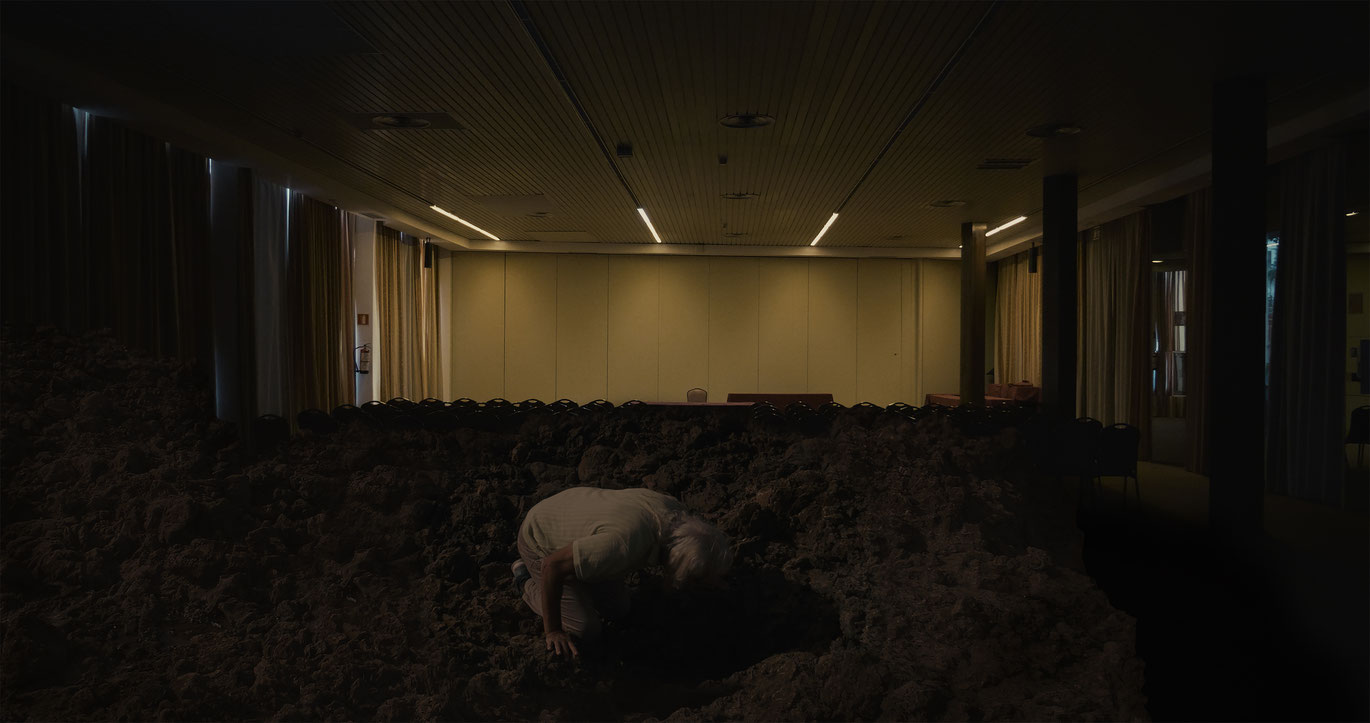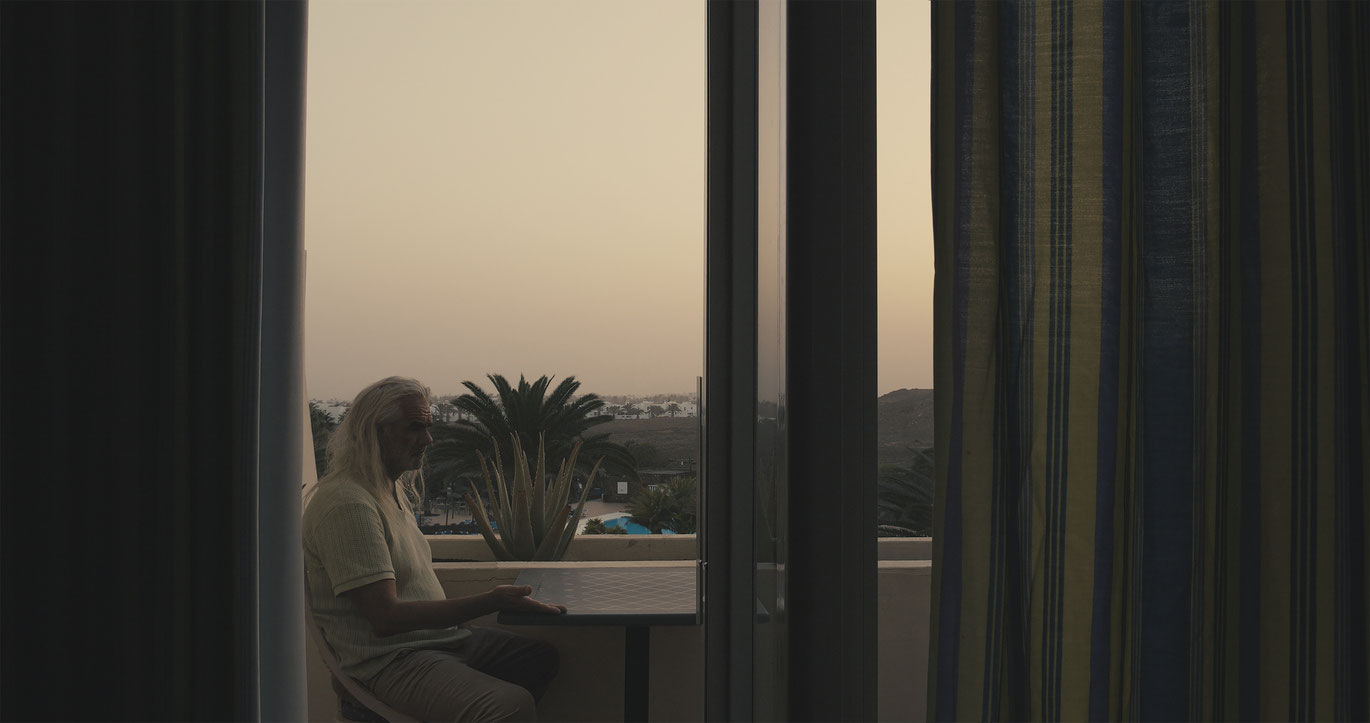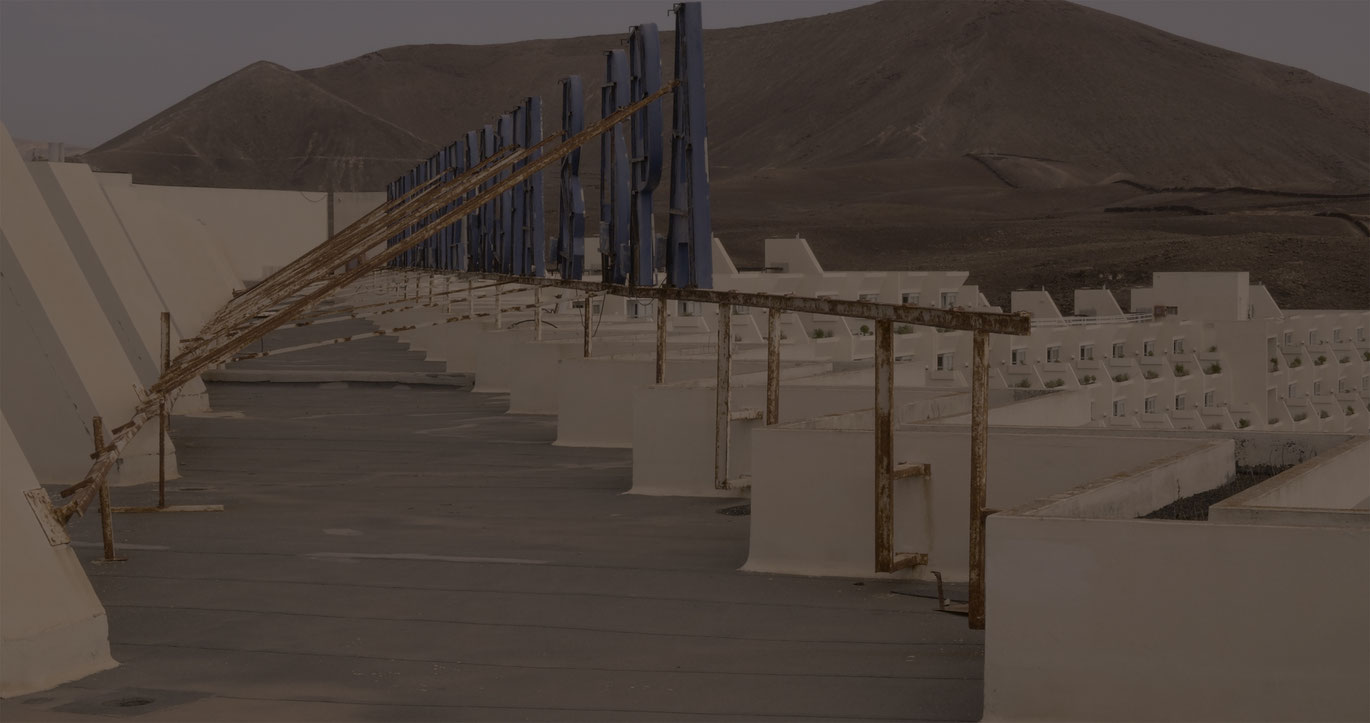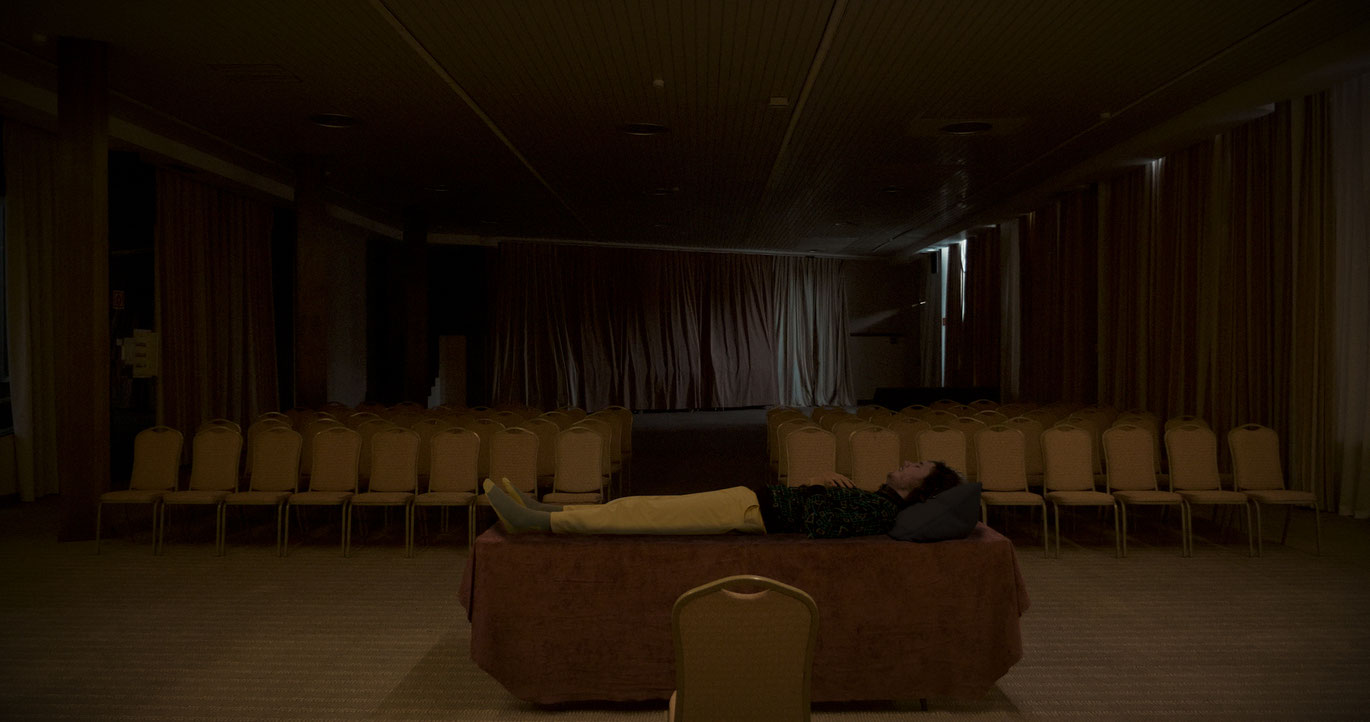Planetenwerk
“It’s a question, a fear that keeps coming back: whether these thoughts can skip from Ralf to me,” Lukas Marxt says at one point. He’s lying on a table, in a somehow therapeutic setting, with an auditorium of empty rows of chairs behind him. “Somehow” isn’t a filler word when writing about this film, but a key. Everything visible is clear and distinct before us and somehow always difficult to describe: waves somehow break in the reflections of glass hotel doors, confined interior spaces somehow expand into the desert in the depth of the image, a pan scans the visible space and at the same time somehow creates space for another image. Seven years after Ralf’s Colors, Marxt and his artistic collaborator Michel Petri return with this film: to one place, Lanzarote, to one person: Ralf Lüddemann, to his form of perceiving the world, the planetary work. And in their search for the traces that Lüddemann’s thinking – which some might call confused, unrealistic, or manic – has left in them and their artistic work, they also somehow return to themselves.
Thus, Planetenwerk can be thought of as a footnote, a postscript, a supplement and inversion to Ralf's Colors, above all turning the basic constellation of the documentary on its head (thus making it open to critical reflection). Whereas in the first film both look at Ralf, who thinks, lives, and looks differently, and his Lanzarote, here he looks back at them and their hotel world, and in doing so, the boundary between those who create the image and those in the image becomes somehow fluid. Planetenwerk consistently incorporates this inversion into its own form, which makes the boundary – between inside and outside, between hotel and desert, between concrete image and abstract constellation, between a documentary about someone and a film as the result of mutual reflection – visible and somehow forgotten. (Alejandro Bachmann)
Translation: John Wojtowicz
Planetenwerk
2026
Austria
28 min




